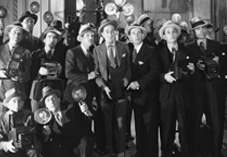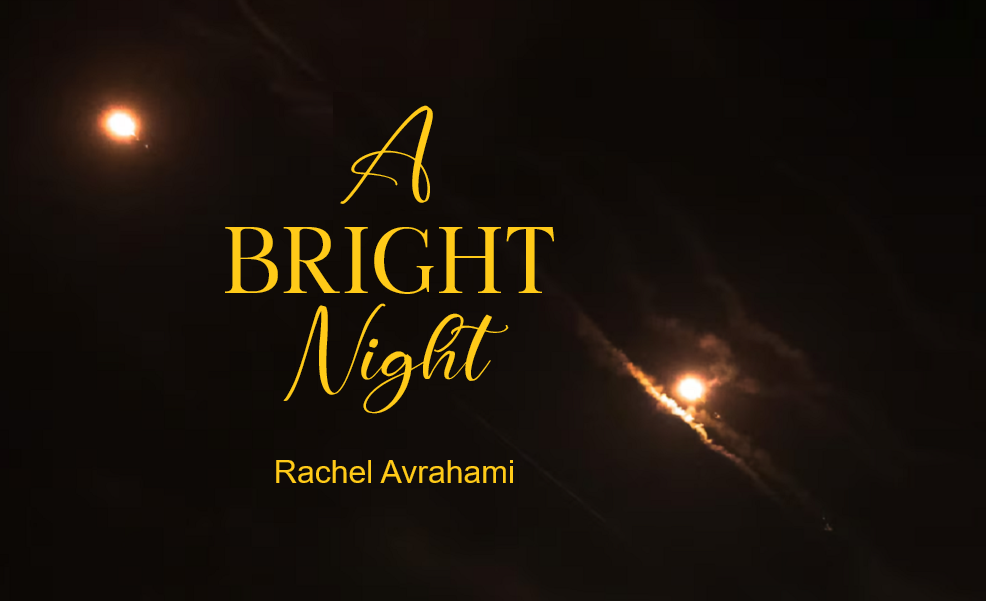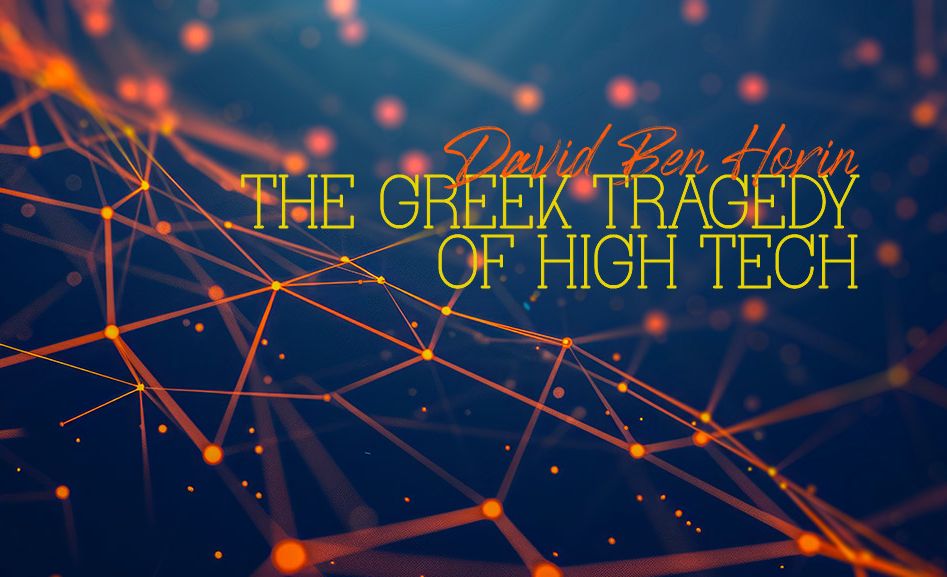
A Nation of Journalists
Today, thanks to the internet, anyone can be a journalist with a following of thousands, or even millions. That's an awesome responsibility...

In a previous life, I used to be a journalist for a Jewish publication in the UK. In many ways, it was the best and worst job of my life: the best, because I genuinely tried to be an ethical, honest and G-d-fearing journalist, who wrote about things that would bring people closer to G-d and to Judaism. The worst, because it's almost impossible to write anything at all about anyone else without transgressing the laws about lashon hara, or evil speech, and a lot of my (very truthful) stories were getting me in a lot of trouble with various people, for various different reasons.
Also, hearing all the 'dirt' about a million different prominent people in the community was not so helpful religiously. I stopped going to synagogue, because I got so jaded about all the 'politics' going on. It was also pretty bad for my arrogance, because writing for a large audience creates a sense of power – ooooo, look how my words are read and believed!!! Look how much influence I wield, how much honor I'm shown, how  important I am!!!
important I am!!!
I tried not to let it all go to my head, I really did, but I probably failed miserably. Towards the end of my tenure on that publication, I got sent to cover a Shabbaton in the 'ultra-religious' community of Gateshead, which is in the North of England.
Many amazing people settled in Gateshead before, during and after World War II, and the community there is religiously probably the strongest place in the whole of England. The downside of Gateshead is that apart from a few small streets of Jews, the rest of the city is filled with some of the toughest and scummiest people you'd ever hope (not…) to meet in your life.
The whole time I was there, I felt like I was in a proper, bona fide Jewish ghetto. From the vantage point of living in Israel, I now see that my own UK community was also a 'ghetto' albeit more yuppy and well-to-do, so it blended in better with the non-Jewish neighbors. But in Gateshead, it was very stark and clear that the difference between the religious Jews and their gentile neighbours was absolutely enormous. And that made me, the 'invisible' religious Jew, feel very uncomfortable. Because judging on appearances, I was closer to the Gateshead non-Jews.
The first day I was there, I kept trying to pick holes in the 'old-fashioned' households, where the woman wore 'frumpy' outfits and double-wrapped their heads, so that I wouldn't feel so bad that I was still wearing my jeans and skinny tees.
But the people were so genuine, so warm, that it was really, really hard to keep myself from liking them and respecting them tremendously, even though I felt we were in such different worlds. By the end of the Shabbaton, I was full of admiration for my hardcore 'frummer' (ultra-religious) hosts.
But the contrast between 'religious' them and not-so-religious me wasn't the only challenging thing: while I was there, one of the rabbis also gave a very powerful shiur about the perils of lashon hara, or evil speech. At the end of his talk, I asked him a question: if a person was a journalist, regularly writing for and about the Jewish world, what was the best way to avoid 'evil speech'?
He didn't pull any punches. He told me that the best, and really only way to avoid the problem was to quit my job and go and do something else. "It's very, very hard for journalists to avoid being sent to Gehinnom (purgatory)," he said. I was stunned into silence.
What, even if I was helping so many people with their fundraising? Or publishing 'Pesach Specials' telling people the basics they needed to do to kosher their kitchens for the holiday?
I didn't do anything about what he'd said immediately, because I loved the 'buzz' of my job too much, and it was too hard to let go of all the influence and power. But the thought continually gnawed at my heart. G-d brought things to a head just a few short months' later, when I started investigating a prominent figure who was siphoning money out of their charitable organisation to pay for their house renovations etc.
It got very nasty, and to cut a long story short, I was given an ultimatum by my boss: either, turn all your evidence over to the person you're investigating, or you're fired. I took the dossier to the Serious Fraud Office (which with hindsight, I probably shouldn't have done…) and that was that.
End of the Jewish journalist career, and also the end of wanting to write anything about Jewish communal affairs, ever again.
(I'd love to tell you that it was the end of me speaking, writing, listening to and believing evil speech, as well, but that would be a whopping great fib…)
I was thinking about this when someone told me that they'd got 100 comments on their latest Facebook post. Oooooh, 100 comments is quite an audience, quite a crowd. 100 comments probably means at least a thousand readers…
Which means that today, thanks to the internet, anyone can be a journalist with a following of thousands, or even millions. That's an awesome responsibility. Remember what that Rabbi said: it's pretty much impossible for a Jew to write about his fellow Jew without transgressing the laws of evil speech.
I got paid a decent salary for my writing efforts back when I was a 'proper' journalist, and even that wasn't enough to make a one way ticket to Gehinnom look so attractive. But to do it for 'fun', voluntarily? If the price we pay for having our say, or having a web-presence is 'hell', literally, why do it? Why continue? Maybe you can tell me, in the comments section below (as nicely and politely as possible, avoiding all 'evil speech'…)
* * *
Check out Rivka Levy's new book The Happy Workshop based on the teachings of Rabbi Shalom Arush










Tell us what you think!
Thank you for your comment!
It will be published after approval by the Editor.